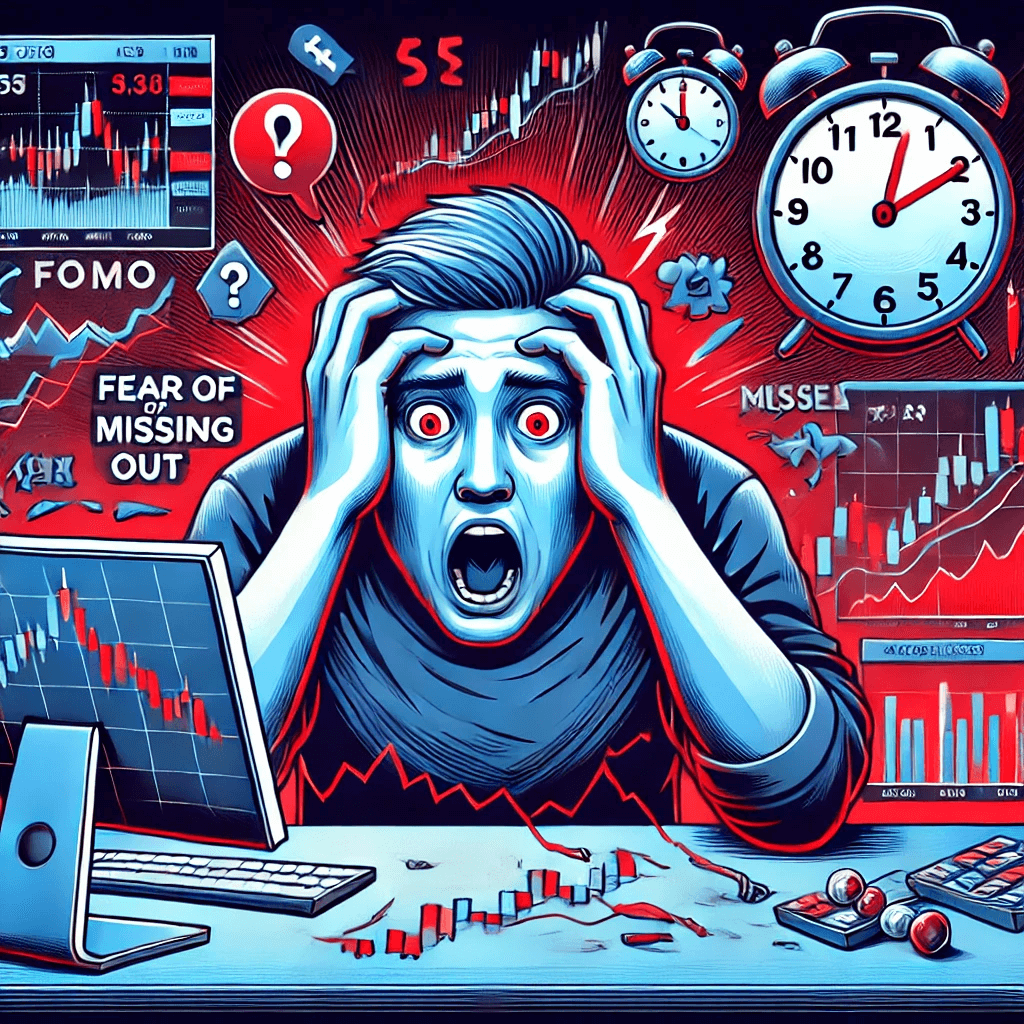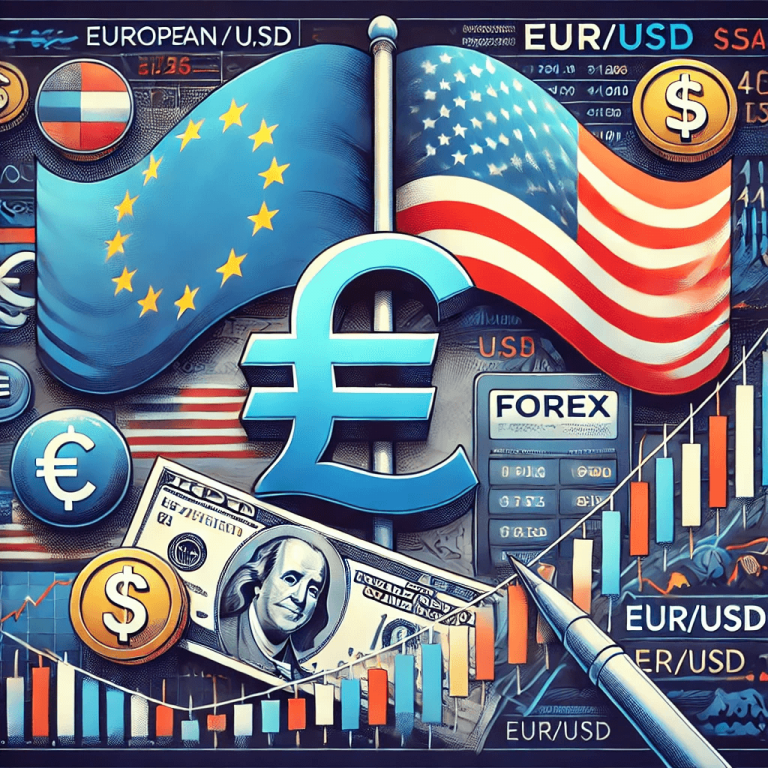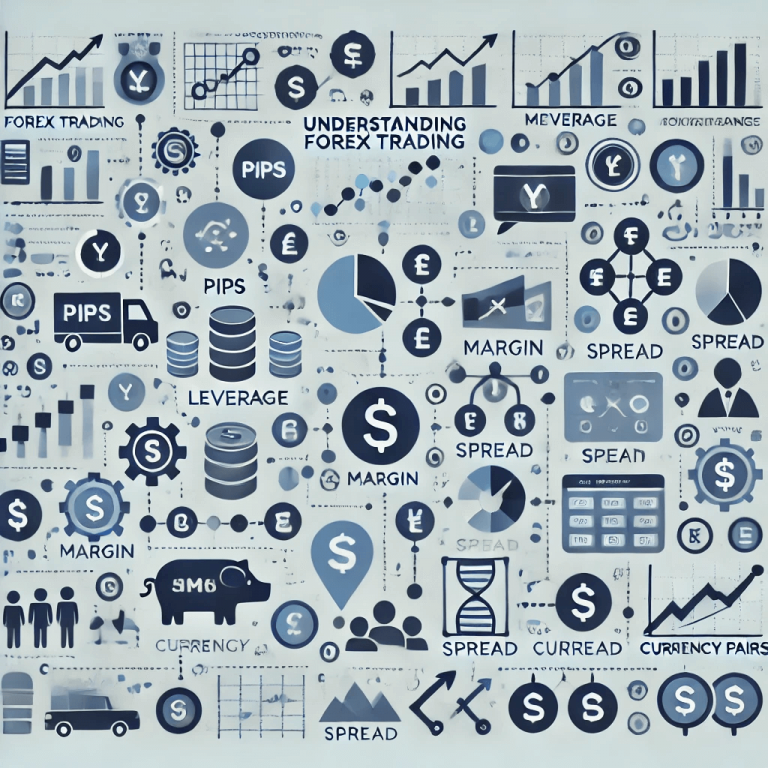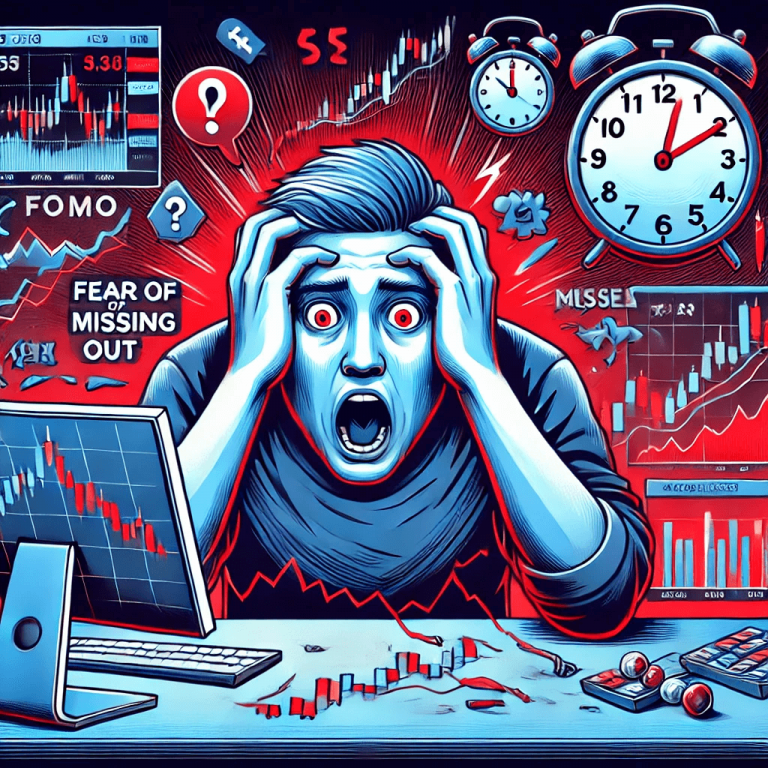FOMO, i.e. “Fear of Missing Out”, is one of the most common phenomena among traders that can significantly affect investment decision-making. It is a widespread occurrence, especially in today’s world where access to information is almost instantaneous, and emotions often become the primary driving force behind financial market actions.
Table of Contents
- What is FOMO in Trading?
- Definition and Psychological Foundations of FOMO
- How FOMO Leads to Wrong Investment Decisions?
- FOMO Symptoms in Trading – Does It Affect You?
- How to Overcome FOMO and Make Better Decisions?
- Strategies to Prevent FOMO in Daily Trading
- Summary
Key Information
- FOMO influences traders to make hasty decisions.
- Emotions and social pressure can lead to impulsive transactions.
- A trading plan and risk management are crucial to limit FOMO’s impact.
- Automation along with strategic approaches minimizes investment errors.
What is FOMO in Trading and How Does It Affect Traders?
FOMO, or the fear of missing out on an opportunity, is an emotional state rooted in the brain’s natural defense mechanism. Although it originally stemmed from the need to ensure survival, nowadays it affects many life decisions, including those related to investing in financial markets. In trading, FOMO manifests as a sudden urge to engage in a transaction when an asset’s price is rising, driven by the fear that missing out on this “opportunity” might result in the loss of potential profits. According to the International Monetary Fund, about 65% of traders experience strong emotions associated with FOMO (Source: IMF, https://www.imf.org).
Definition and Psychological Foundations of FOMO
FOMO in trading is a natural psychological mechanism that arises from an innate need to respond to potential threats and opportunities. This mechanism often leads to impulsive decisions, as traders fear that missing a particular trade might mean losing out on profits.
Social media and market analysts play a significant role in intensifying this phenomenon. Rapid information about price increases or “hot deals” can trigger pressure, forcing traders to act immediately, even if technical analysis does not confirm the movement. The human brain reacts to rapid price movements similarly to how it responds to rewarding stimuli, causing traders to view such opportunities as chances for quick profit. In this state of mind, risks are overlooked, and the desire for instant gratification prevails over rational calculation. “We must remember that emotions are the worst advisor in trading” – emphasizes renowned international market analyst John Reeves (Source: Financial Times, https://www.ft.com).
| Symptom | Description | Examples |
|---|---|---|
| Impulsiveness | Lack of thoughtful analysis before a trade | Buying following a sudden price surge |
| Lack of Patience | Decision made under the influence of emotion | Quick sale during price drops |
How Does FOMO Lead to Wrong Investment Decisions?
FOMO can lead to wrong investment decisions on many levels, with one of the most common mistakes being entering a position too late. Driven by emotion, traders often decide to purchase assets when their price has peaked, fearing that they might miss further increases. Statistics from Eurostat indicate that approximately 70% of impulsive transactions were conducted under the influence of FOMO (Source: Eurostat, https://ec.europa.eu/eurostat), further confirming the link between emotions and erroneous decisions.
Impulsive decisions driven by FOMO cause traders to often abandon their previously devised trading plan, which was intended to avoid emotional reactions and focus on long-term goals. For instance, investors might enter the market without a sufficient understanding of the trend, merely because they observe increases on social media that suggest a “once in a lifetime opportunity.”
Throughout financial market history, there have been numerous cases where FOMO led to enormous losses. One example is the dot-com bubble of the 1990s, when investors, fascinated by the rapidly rising prices of technology stocks, invested without proper due diligence. As a result of a sudden market collapse, many suffered huge losses, acting on emotion rather than rational analysis.
FOMO Symptoms in Trading – Does It Affect You?
FOMO in trading manifests in various behaviors that can lead to ill-considered investment decisions.
Common behaviors exhibited by traders under the influence of FOMO
One of the most frequent symptoms is overtrading. Influenced by emotion and fear of missing an opportunity, traders make decisions too quickly by engaging in too many transactions. Often, there is a lack of market analysis, leading to well-intentioned yet thoughtless decisions.
Another symptom of FOMO is the absence of technical and fundamental analysis before entering a position. Acting on impulse, traders forgo the necessity of a thorough market understanding, basing decisions on emotion or on information that has not been properly verified. Such actions may lead to investments in assets that, in reality, lack a solid foundation.
Lack of patience is yet another symptom indicating FOMO’s influence on investment decisions. Traders, fearing the loss of an opportunity, make decisions too quickly without allowing time for a better market analysis or waiting for the right moment to execute a trade. This hastiness often leads to mistakes because decisions are made under emotional stress rather than objective analysis.
How can you tell that you are acting under the influence of FOMO?
One of the first signals is the sudden urge to enter the market without rational justification. This might be triggered by observing abrupt price movements or an impulsive belief that “this is the last chance.”
Another indicator of acting under FOMO is experiencing intense emotions (euphoria, stress, fear) during trading. Traders making decisions due to FOMO often feel significant tension – they might experience euphoria when the market moves in a favorable direction, or stress and fear when events do not unfold as expected. Such mood swings indicate that emotions are beginning to overshadow rational thinking.
A further symptom of FOMO is comparing one’s performance to that of other traders. This is often driven by a fear that if one does not act similarly, the opportunity for profit will be lost. Traders may start imitating others’ decisions without taking into account their own investment goals, strategies, or the level of risk they are willing to assume.
How to Overcome FOMO and Make Better Decisions?
To effectively overcome FOMO and make wise decisions, it is essential to develop a clear strategy and adhere rigorously to pre-established guidelines.
Building a Trading Plan and Sticking to the Strategy
A strategy based on technical and fundamental analysis enables one to make investment decisions in an organized and methodical manner, avoiding the impulsive emotional reactions that lead to mistakes. It is beneficial to start by determining the entry and exit criteria for trades, which helps avoid unnecessary risk and decisions driven by transient emotions.
The role of backtesting is invaluable in building trading confidence. Testing a strategy on historical data provides the trader with a realistic perspective on the methodology’s effectiveness. This allows for an understanding of how the system reacted historically to changing market conditions, which can help mitigate emotional decisions and provide greater confidence when taking subsequent actions. Research by international institutions shows that traders adhering to a trading plan achieve up to 40% better results (Source: OECD, https://www.oecd.org).
Employing Risk Management Principles
Risk management is a cornerstone of effective trading, especially in the context of FOMO that can lead to impulsive decisions. One of the fundamental principles of risk management is the Risk/Reward Ratio. It defines how much potential profit a trader expects in relation to the risk undertaken in a given trade. Maintaining an appropriate ratio, for example 1:2 or 1:3, helps minimize losses over the long term, even if some trades do not succeed.
Avoiding overleveraging is another key principle. Under the influence of emotions such as the fear of missing out or euphoria, traders often decide to use excessively high leverage. While overleveraging can amplify potential gains, it also introduces a significant risk of rapid capital loss.
Setting predefined Stop-Loss and Take-Profit levels is one of the basic methods of risk management. Establishing these levels before opening a position allows for the automatic closing of a trade when the price reaches the predetermined value.
| Principle | Description | Benefit |
|---|---|---|
| Risk/Reward Ratio | Determining the ratio of risk to reward | Minimization of losses |
| Stop-Loss/Take-Profit | Automatic trade closure | Capital protection |
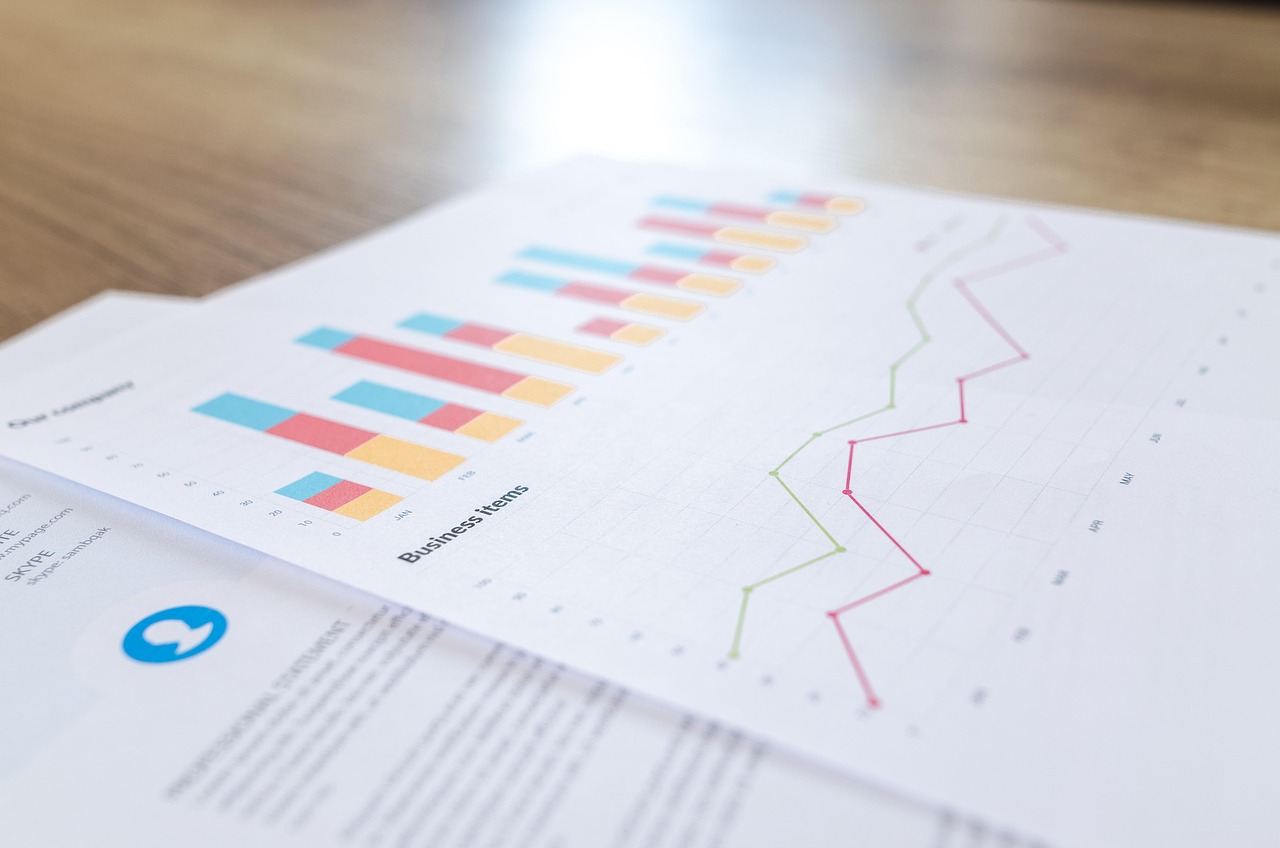
Consciously Managing Emotions in Trading
One technique that can help keep emotions in check is mindfulness. In trading, mindfulness means being aware of one’s emotions and reactions in the present moment without judgment. Practicing mindfulness regularly helps traders maintain calmness and clarity during challenging situations, enabling them to make more conscious decisions rather than reacting impulsively.
Keeping a trading journal is another effective method for analyzing emotions, as it allows for the conscious monitoring and evaluation of one’s responses to market events. By documenting decisions, feelings, and trade outcomes, traders can identify moments when their emotions adversely affected their investment choices.
The importance of taking breaks from trading and stepping away from the market also plays a crucial role in sustaining emotional balance. Trading, especially during periods of market volatility, can be stressful and require intense focus. Therefore, it is important for traders to take regular breaks to reset their minds and allow themselves time to recuperate.
Strategies to Prevent FOMO in Daily Trading
FOMO can severely influence investment decisions in trading. To manage this phenomenon effectively, it is crucial to implement appropriate strategies that help reduce the impact of emotions and promote a more rational approach to investing.
Focusing on a Long-Term Perspective
One of the best ways to counteract FOMO is to shift the trading perspective to a long-term horizon. Thinking in terms of months and years, rather than days and hours, helps avoid the pitfalls of quick decisions that are often driven by short-term market volatility. Making decisions based on long-term goals and strategies provides greater patience and reinforces the understanding that financial markets require time to deliver the expected outcomes.
Traders who effectively manage their emotions tend to exhibit certain characteristics that help them deal with FOMO. First and foremost, they remain calm in the face of market volatility and understand the value of planning and consistency. They know that success in trading does not come overnight and thus make decisions based on thorough analyses rather than fleeting emotions. These traders are also highly self-reliant and are not easily swayed by the actions of others. According to OECD studies, entrepreneurship based on a long-term strategy yields results up to 40% better (Source: OECD, https://www.oecd.org).
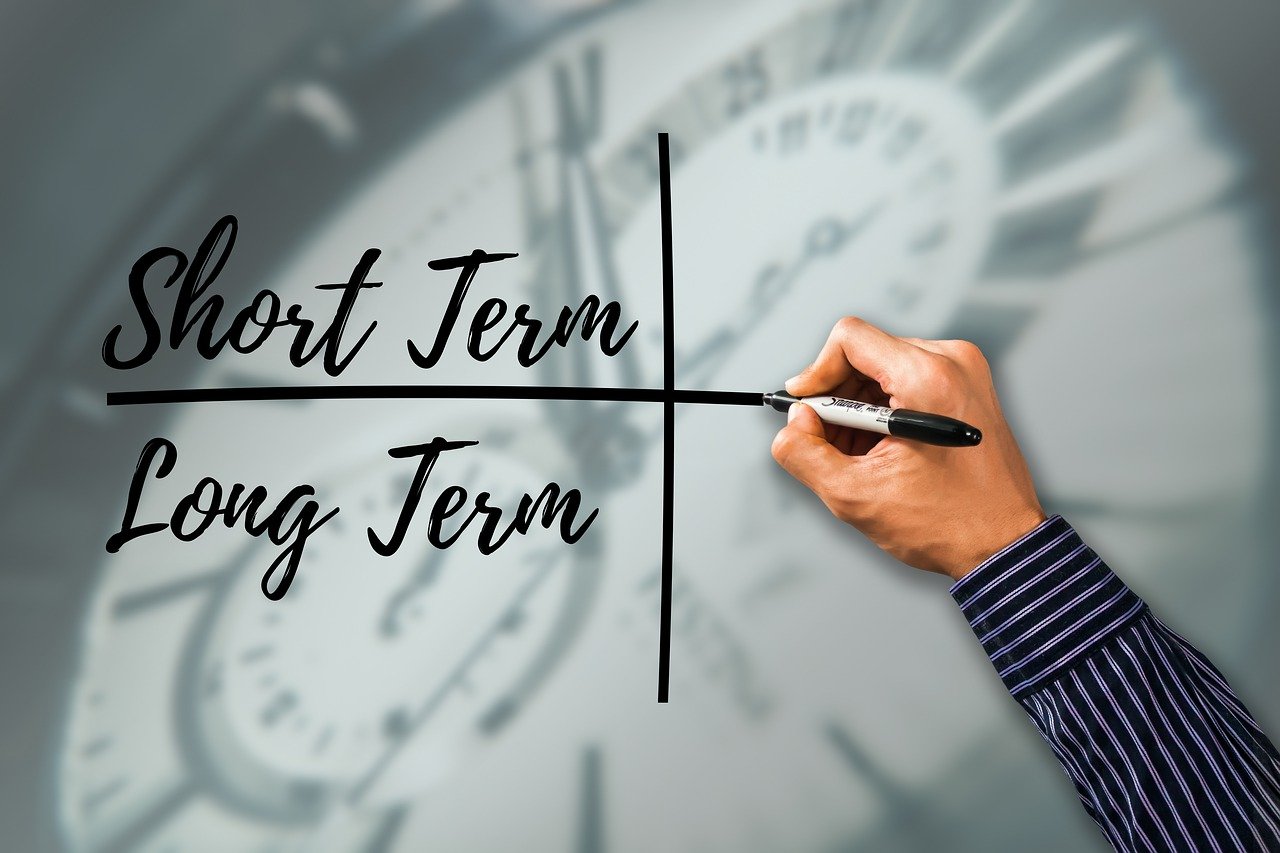
Reducing the Influence of Media and Trading Communities
Today, social media and various trading communities are ubiquitous, and traders can easily become overwhelmed by the constant flow of information. Filtering information and avoiding unnecessary noise is fundamental to maintaining focus on a long-term strategy. It is advisable to concentrate on trusted sources of information and not be swayed by short-term trends or “hot tips.”
Analyzing one’s own data is another aspect that helps maintain control over investment decisions. Instead of relying solely on external forecasts or the opinions of other traders, it is beneficial to focus on analyzing one’s own performance, experiences, and market data.
Avoiding comparisons with other traders is also extremely important because it can lead to decisions driven by pressure. Modern trading is replete with individuals sharing their successes and results, which may trigger the fear of falling behind. However, comparing one’s own performance to that of others is detrimental, as every trader has a unique style, strategy, and risk tolerance.
Automating the Decision-Making Process
One solution that helps avoid FOMO is the automation of the decision-making process. Utilizing algorithms and automated trading systems permits decisions to be made based on data rather than emotion. Algorithms can execute trades based on predefined rules, such as technical analysis, allowing for a more consistent and systematic approach to trading.
Instead of spending long hours monitoring the market, traders can set up price alerts that notify them of important changes in asset prices.
The mechanical trading strategy, which is based exclusively on pre-planned rules and algorithms, eliminates the influence of emotion because decisions are made according to established guidelines rather than market impulses.

Summary
In summary, FOMO is one of the primary factors affecting investment decisions. The fear of missing out on profits, stemming from observing other investors succeed, can lead to hasty decisions and increased risk. It is important for investors to be aware of this phenomenon and strive to avoid making decisions based on emotion. The most critical aspect is maintaining a cool head, adhering to a strategy, and sticking to established investment principles to minimize FOMO’s impact on trading decisions.
